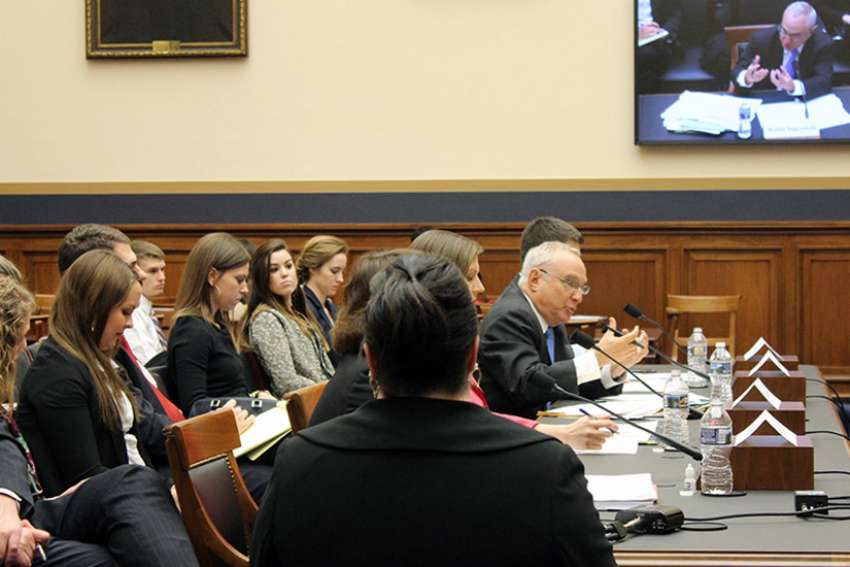“I think it raises very serious equal protection issues,” said Rabbi David Saperstein, who recently ended his tenure at the U.S. State Department.
According to The Nation, a leaked draft of a proposed executive order titled “Establishing a Government-Wide Initiative to Respect Religious Freedom” shows that on issues such as same-sex marriage, abortion, gender identity and premarital sex, the Trump administration would allow exemptions for people with religious objections that are so broad it would "legalize discrimination."
The language in that document says, “Americans and their religious organizations will not be coerced by the Federal Government into participating in activities that violate their conscience.”
Answering a question from Rep. Jerry Nadler, D-N.Y., at a hearing Thursday (Feb. 16), Saperstein said he was concerned the order could give government contractors discretion to refuse services based on their religious beliefs.
“I think it raises significant constitutional problems,” Saperstein told members of a subcommittee of the House Judiciary Committee.
Nadler, who along with Saperstein has been instrumental in the passage of religious liberty legislation, said laws such as the Religious Freedom Restoration Act are designed to shield people from government imposition of religious beliefs.
“However, it should not be used as a sword to enable you to impose your religious belief on someone else,” said the congressman, who raised examples of interracial or same-sex couples being refused at a restaurant by proprietors with religious objections.
Kim Colby, director of the Christian Legal Society’s Center for Law and Religious Freedom, said after the hearing that Nadler’s examples are “misguided” because civil rights laws regarding restaurant discrimination were set more than 50 years ago.
“An executive order can’t change a law that Congress has passed,” said Colby, who also testified before the Subcommittee on the Constitution and Civil Justice. “So a lot of those hypotheticals just can’t happen.”


